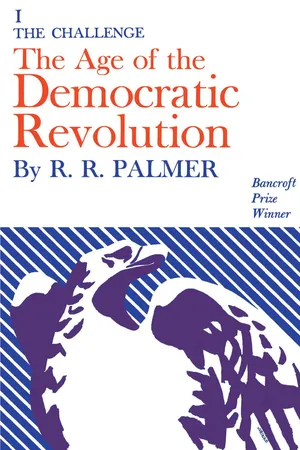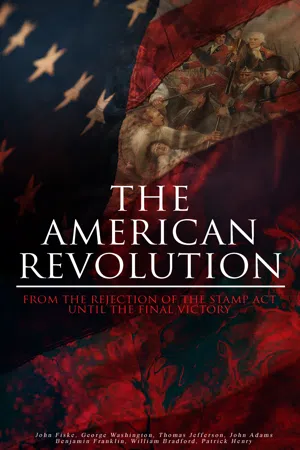Colonial Assemblies
Colonial assemblies were legislative bodies established in the American colonies during the 17th and 18th centuries. They were responsible for making laws, levying taxes, and overseeing local governance. These assemblies played a significant role in shaping the political and social landscape of the colonies, and were often a focal point for debates and conflicts with colonial governors and the British Crown.
3 Key excerpts on "Colonial Assemblies"
- eBook - ePub
- Sarah McKibbin, Libby Connors, Marcus Harmes(Authors)
- 2021(Publication Date)
- Hart Publishing(Publisher)
...Bills were submitted to London for approval. When the colonial constitutions came into effect in October 1856, each provided for a bicameral legislature – a legislature divided between two chambers. All but one colony chose an elected, rather than nominated, upper house. To protect landed interests, New South Wales settled upon a nominated Upper House. The remaining four colonies were to have elected Legislative Councils. The Constitutions afforded greater autonomy over land and finance in the colony. These Constitutions paved the way for this system of government to apply to Western Australia and the proposed colony of Queensland. Representative and Responsible Government from 1850 In early 1851, gold was discovered near Bathurst in New South Wales. The resulting gold rush improved government coffers and substantially increased the colonial population. Responsible government beckoned. Now, the Colonial Office was more prepared than ever before to relinquish control over land policy and revenue from land sales to the colonies. By 1859, five of the six separate British colonies in Australia had achieved responsible government. Colonial governance was placed on a similar footing to British political arrangements. The Governor acted as the British Crown’s representative. He constituted an Executive Council comprising Members of Parliament who were also Ministers of the Crown. Second, the colonial constitutions created parliaments with two chambers: an upper house (the Legislative Council) and a lower house (the Legislative Assembly or House of Assembly). The lower houses in New South Wales, Victoria, Tasmania and South Australia were elected by voters satisfying certain property or educational qualifications. Eligibility to vote was set at a higher level for the upper house. In New South Wales, members of the upper house were appointed. Patterns of membership and the franchise were key differences between the colonial constitutions...
- eBook - ePub
- R. R. Palmer(Author)
- 2021(Publication Date)
- Princeton University Press(Publisher)
...Governors, unable to control their assemblies, undertook to disband them, only to see most of the members continue to meet as unauthorized congresses or associations; or conventions of counties, unknown to the law, chose delegates to such congresses for provinces as a whole; or local people forcibly prevented the sitting of law courts, or the enforcement of legal judgments by the sheriffs. Violence spread, militias formed, and the Continental Congress called into existence a Continental army, placing General George Washington in command. In whose name were these armed men to act? To what civilian authority were they to be subordinated? How could the courts be kept open, or normal court decisions and police protection be carried out? If American ships, breaking the old navigation system, should enter the ports of Europe, in whose name should they appear? If diplomatic agents were sent to Versailles or the Hague, whom were they to say that they represented ? If aid was to be sought from France, would the French give it for any purpose except to break up the British empire, and undo the British victory of 1763? These practical needs, together with the inflaming of feeling against England by war and bloodshed, and the extraordinary success of Thomas Paine’s pamphlet, Common Sense, induced the Congress, more than a year after the battle of Lexington, to announce the arrival of the United States of America “among the powers of the earth,” able to do “all acts and things which independent states may of right do.” With the Declaration of Independence, and the new constitutions which most of the states gave themselves in 1776 and 1777, the revolutionary colonials began to emerge from the anarchy that followed the collapse or withdrawal of British power. They sought liberty, it need hardly be said; but they also sought authority, or a new basis of order...
- eBook - ePub
The American Revolution: From the Rejection of the Stamp Act Until the Final Victory
Complete History of the Uprising; Including Key Speeches and Documents of the Epoch: First Charter of Virginia, Mayflower Compact, The Stamp Act, Continental Association, Declaration of Independence
- John Fiske, George Washington, Thomas Jefferson, John Adams, Benjamin Franklin, William Bradford, Patrick Henry(Authors)
- 2019(Publication Date)
- Madison & Adams Press(Publisher)
...In private letters, too, the governors poured forth their complaints into the ears of the Lords of Trade, and these complaints were many and loud. Except in Pennsylvania and Maryland, which were like hereditary monarchies, and in Connecticut and Rhode Island, where the governors were elected by the people, the colonial governors were now invariably appointed by the Crown. In most cases they were inclined to take high views regarding the royal prerogative, and in nearly all cases they were unable to understand the political attitude of the colonists, who on the one hand gloried in their connection with England, and on the other hand, precisely because they were Englishmen, were unwilling to yield on any occasion whatsoever one jot or tittle of their ancient liberties. Moreover, through the ubiquity of the popular assemblies and the directness of their control over the administration of public affairs, the political life of America was both really and ostensibly freer than that of England was at that time; and the ancient liberties of Englishmen, if not better preserved, were at least more conspicuously asserted. As a natural consequence, the royal governors were continually trying to do things which the people would not let them do, they were in a chronic state of angry warfare with their assemblies, and they were incessant in their complaints to the Lords of Trade. They represented the Americans as a factious and turbulent people, with their heads turned by queer political crotchets, unwilling to obey the laws and eager to break off their connection with the British Empire. In this way they did much to arouse an unfriendly feeling toward the colonies, although eminent Englishmen were not wanting who understood American affairs too well to let their opinions be thus lightly influenced...


